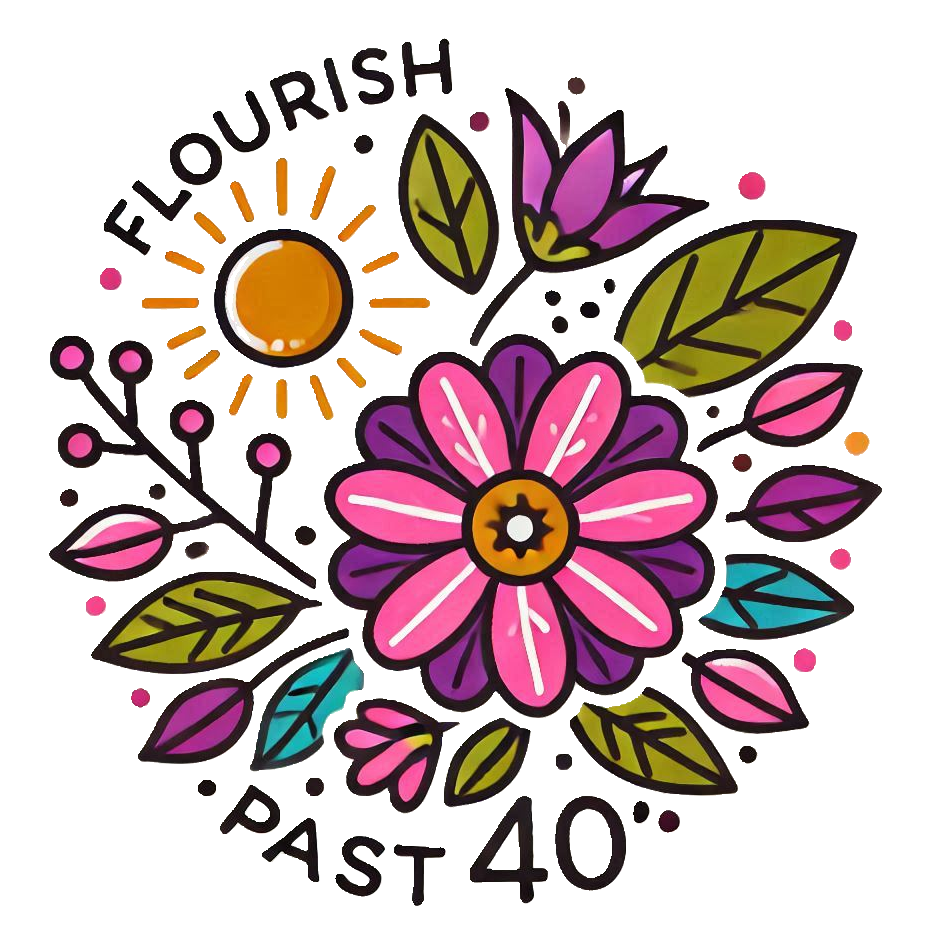
Aging can sometimes feel overwhelming. We are faced with changes in our body, mind, and the world around us. However, aging doesn’t have to be something to fear or avoid. In fact, with the right mindset and practices, this stage of life can be incredibly fulfilling. If you’re over 40 and seeking ways to age gracefully while maintaining a sense of peace and well-being, mindful aging practices may be just what you need.
Mindfulness is the practice of being present and fully engaged in the moment, without judgment. When applied to aging, mindfulness can help you navigate the changes that come with getting older in a calm, peaceful way. In this blog, we’ll explore mindful aging practices that promote inner peace, emotional wellness, and overall well-being as you journey through life after 40.
Why Mindfulness Matters for Aging
As we age, life presents us with unique challenges: physical changes, shifts in relationships, career transitions, and new responsibilities. With these changes, it’s easy to feel anxious, stressed, or uncertain about the future. Practicing mindfulness can help us stay grounded and focused on the present, rather than worrying about what’s to come.
Mindful aging is about embracing the present moment, cultivating self-compassion, and accepting the natural progression of life. It’s a way to find peace within yourself and truly appreciate the wisdom and experience that come with getting older.
1. Embrace the Power of Acceptance
One of the key elements of mindful aging is acceptance. This doesn’t mean giving up or resigning yourself to circumstances, but rather acknowledging the reality of your situation without judgment. By accepting the changes that come with aging, whether physical, emotional, or mental, you open yourself to a more peaceful, fulfilling life.
Acceptance helps you embrace aging as a natural part of life rather than something to fear or resist. When you stop fighting against the changes, you can focus on making the most of each moment and adapt to new circumstances with grace and resilience.
2. Practice Gratitude Every Day
Gratitude is a simple yet powerful tool for improving your mental and emotional health. It shifts your focus from what you lack to what you have, fostering a sense of abundance and peace. Research has shown that gratitude can reduce stress, improve sleep, and increase overall happiness.
Take time each day to reflect on the things you are grateful for—whether it’s your health, your relationships, or simply the fact that you’re alive. You can keep a gratitude journal, or simply take a moment each morning or evening to mentally note what you’re thankful for. This practice can help you cultivate a mindset of contentment and peace.
3. Stay Present Through Mindful Breathing
Mindful breathing is one of the easiest ways to practice mindfulness and find peace in the present moment. When we’re feeling stressed or overwhelmed, we often forget to focus on our breath. But simply pausing for a few deep breaths can help calm the mind and reduce feelings of anxiety.
To practice mindful breathing, sit or lie down in a comfortable position. Close your eyes, take a deep breath in through your nose, hold for a moment, and then slowly exhale through your mouth. When you inhale, push your stomach out, which pushes your diaphragm down allowing more air in. Focus all your attention on your breath, noticing the sensation of the air entering and leaving your body. When your mind starts to wander, gently bring your attention back to your breathing.
Box breathing is also good – inhale for 4s, hold for 4s, exhale for 4s, just be for 4s, repeat.
Incorporating mindful breathing into your daily routine, even for just a few minutes, can help you feel more centered and at peace, no matter what changes are happening around you.
4. Engage in Gentle Physical Activity
Physical activity is important at any age, but it becomes especially crucial as we get older. Regular exercise helps maintain physical health, boosts mood, and reduces stress. However, the key to mindful aging is to engage in gentle, enjoyable activities that nurture both body and mind.
Yoga, tai chi, and walking are all great ways to stay physically active while practicing mindfulness. These activities help you focus on your body’s movements, breath, and sensations in the present moment. Not only do they improve your physical health, but they also promote mental clarity and emotional well-being.
If you’re new to exercise or haven’t been active for a while, start slowly and listen to your body. Over time, you’ll notice that physical activity helps reduce anxiety, improve sleep, and increase overall happiness.
If you have been exercising for most of your life and prefer high impact exercise, then that is fine too. Running, HIIT, weightlifting – that is all fine too but remember to listen to your body and have rest days too.
5. Cultivate Self-Compassion
As we age, it’s easy to be critical of ourselves—especially when faced with physical changes like wrinkles, weight gain, or decreased energy levels. But mindfulness encourages us to treat ourselves with the same kindness and compassion we would offer to a dear friend.
Self-compassion is about acknowledging that it’s okay to have struggles and imperfections. It’s about treating yourself with understanding, patience, and love, rather than judgment. Instead of focusing on perceived flaws, practice speaking to yourself kindly. Remind yourself that aging is a natural part of life, and there’s no need to be harsh or critical of yourself.
By cultivating self-compassion, you create a foundation for inner peace and emotional well-being as you navigate the challenges of aging.
6. Develop a Spiritual Practice
Spirituality can play an important role in mindful aging, offering a sense of meaning, purpose, and connection. Whether you follow a particular religious tradition or simply have a sense of wonder about the universe, developing a spiritual practice can bring a deep sense of peace and comfort.
Spirituality doesn’t have to be complex or rigid. It can simply be about spending time in nature, meditating, praying, or reflecting on the deeper meaning of life.
If you’re unsure where to start, try spending a few minutes each day in quiet reflection or reading spiritual texts. Over time, you may find that spirituality brings a deeper sense of inner peace and perspective on the aging process.
Personally, I find that prayer, being part of a church community, praise & worship and diving into the Bible regularly makes the biggest impact and is so important in my life.
7. Foster Social Connections
As we age, our social connections can sometimes start to diminish. But maintaining relationships with family, friends, and the community is essential for emotional well-being and peace of mind. Having a strong support system helps reduce feelings of loneliness and isolation, which are common challenges for older adults.
Make time to nurture your relationships, whether through regular phone calls, social activities, or simply spending time with loved ones. Being surrounded by a supportive network can provide a sense of comfort and belonging as you age.
8. Simplify and Declutter Your Life
Mindful living often involves simplifying your surroundings and routines. As we age, our priorities and needs can change. Taking the time to declutter your home and simplify your life can help reduce stress and create more space for peace.
Personally, with having multiple young children and a busy family life I feel that decluttering almost daily is vital to reduce stress and create more space for peace.
Look around your home and ask yourself what items or commitments no longer serve you. By letting go of unnecessary things, you create more room for the things that truly bring you joy and peace. Simplifying your environment and your schedule can help you focus more on the present moment and less on the chaos of daily life.
9. Practice Positive Affirmations
Positive affirmations are short, empowering statements that can help shift your mindset and reduce negative thinking. By repeating affirmations daily, you can reframe your thoughts and cultivate a more positive outlook on aging.
Some examples of positive affirmations for mindful aging include:
- “I am grateful for the wisdom that comes with age.”
- “I accept and embrace the changes in my life with grace.”
- “Every day, I am becoming more peaceful and content.”
Start each day by saying an affirmation that resonates with you. Over time, this practice can help you feel more confident, peaceful, and empowered in your aging journey.
Conclusion: Embrace Mindful Aging for Inner Peace After 40
Aging is a natural part of life, and it can be a beautiful journey if you approach it with mindfulness and acceptance. By incorporating mindful aging practices into your daily routine, you can find inner peace, emotional well-being, and a deeper appreciation for the life you’ve lived and the one you’re creating.
Remember, aging doesn’t mean losing your sense of self or your ability to flourish. With mindful practices like gratitude, self-compassion, and gentle or vigorous (depending on your experience and preference) physical activity, you can embrace this stage of life with grace, joy, and peace.
The journey of aging gracefully is one of continuous growth, and the tools you need are already within you. Take a moment each day to breathe, reflect, and appreciate the beauty of each passing moment. Mindful aging is not about perfection; it’s about finding peace with where you are, right now.
Read next: Best Online Help For Mental Health

